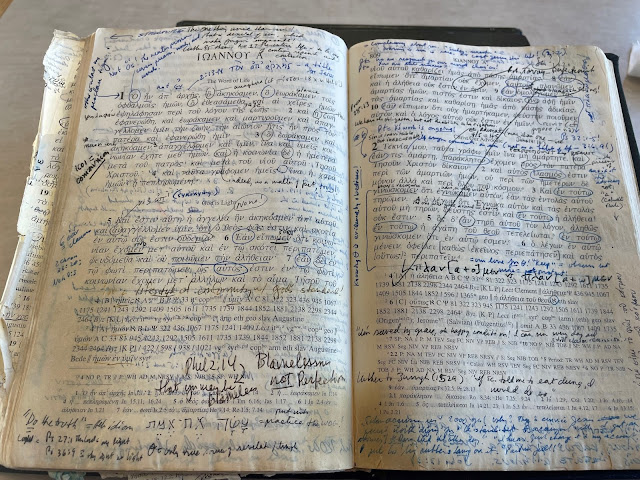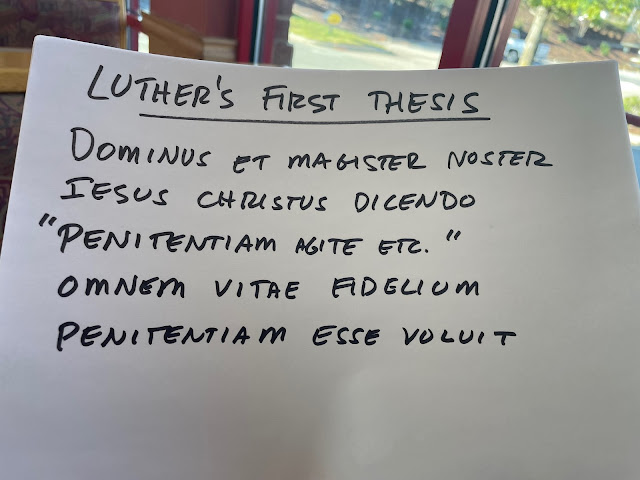When I was 26, I taught the book of 1 John for the first time. This will start all over again in a couple of weeks as we begin the exegesis of 1 John in our Greek 2 class.
Whenever I introduce this book to my classes, I always take them to Luther's 95 theses.
 |
| This is the 1517 Basel pamphlet. |
His very first thesis might surprise you. It reads:
Here's how I might translate it into English:
"When our Lord and Master Jesus Christ says, 'Repent," he meant that believers should live a whole life of continual repentance."
Sin, writes John, is inexcusable for the believer. But it is also inevitable. Does this sound like a riddle? Not to John. No, he is constantly begging his readers not to sin. Obedience is not an option for him. So what do we do when we sin? "At the time it happens," God says, "I am there. You have One who pleads your case in my very presence. He is Jesus Christ, the righteous one. There is no expiration date on his forgiveness, or mine. Come near, confess your sin, and I will forgive you."
Our lives must be one long act of confession, contrition, and repentance. This is founded on a paradigm shift: Not, how does God's will fit into my life, but how does my life fit into God's will? The one who wants to hear his voice will hear it. The one who plans on doing God's will will do it.
So, with contrite hearts, we can only open our hands toward heaven, admitting our sins and errors and turning from them (again and again if necessary). We respond each time God whispers.

